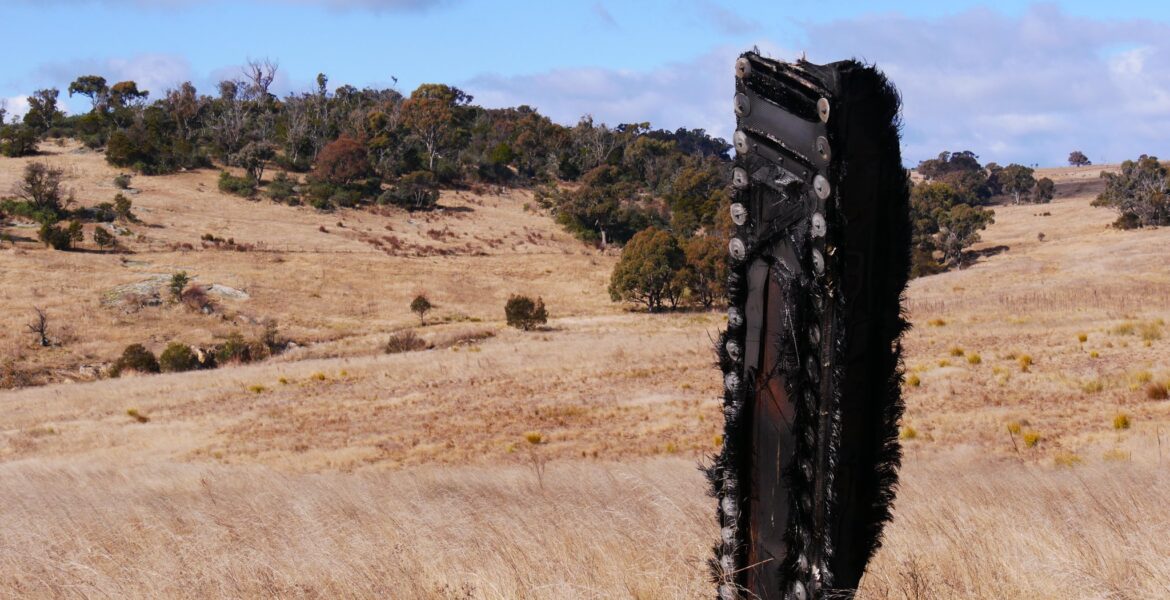"G'day Elon Musk, I'm a reporter at ABC News that's been covering the discovery of SpaceX debris in Australia. Just wondering, is anyone from your team coming to collect it? Here's a pic of one of the pieces."
After locals reported hearing a ‘loud boom’ on July 9, three pieces of space junk have catapulted out of space, landing in sheep paddocks on two separate properties located in the NSW Snowy Mountains of Australia.
The Australian Space Agency has confirmed that the debris belongs to American spacecraft manufacturer SpaceX, most likely caused by the re-entry into the Earth’s atmosphere of SpaceX Dragon spacecraft, which was launched in November 2020.
"The agency has confirmed the debris is from a SpaceX mission and continues to engage with our counterparts in the US, as well as other parts of the Commonwealth and local authorities as appropriate," an Australian Space Agency spokesperson told ABC reporter Adriane Reardon who has been covering the story.
"The agency is operating under the Australian Government Space Re-entry Debris Plan which outlines roles and responsibilities for key Australian government agencies and committees in supporting the response to space re-entry debris."
Measuring up to three metres in size, and double the height of an adult male as shown in photographs taken by Reardon at one of the ‘landing sites’, the space debris is the largest found in Australia since 1979.
Residents have been told that more pieces could be found and warned not to touch it due to its potential toxicity.
"If the community spots any further suspected debris they should not attempt to handle it or retrieve it," said the Australian Space Agency.
"They should contact the SpaceX Debris Hotline at 1-866-623-0234 or at [email protected]."
Australian National University's Institute of Space mission specialist, space law lecturer and deputy director Cassandra Steer told Reardon that an obligation under international space law to repatriate any debris to the country from where it originated.
"Any space object, or part thereof, has to be repatriated, and I'm sure that's what's going to happen in this case as well," she said.
"Unless SpaceX says that it wants no part in the costs associated with it, and it would like to donate the debris to science, that's quite possible. But it should be sent back to the US."
Possibly hoping to expediate the process, Reardon took matters into her own hands on Wednesday, tweeting a message to SpaceX founder Elon Musk from her personal account to ask when he will be retrieving his sizeable pieces of junk.
“G'day @elonmusk, I'm a reporter at @abcnews that's been covering the discovery of @SpaceX debris in Australia,” she tweeted.
“Just wondering, is anyone from your team coming to collect it? Here's a pic of one of the pieces."
https://twitter.com/adrianereardon/status/1554674873624334336
For those wondering, here’s the latest: https://t.co/5UzD9JavVc
— Adriane Reardon (@adrianereardon) August 3, 2022
Human For Scalehttps://t.co/zIQMBrGts8
— Khakim Hudaya (@huedaya) August 4, 2022
Considering that space debris orbits around the Earth at tremendous speeds of around 15,700 miles per hour in low Earth orbit, its existence carries potential risk of causing significant damage to a satellite or a spacecraft in case of a collision. Also risk of causing significant damage should a piece come hurtling into one’s living room rather than landing a sheep paddock located in a remote region of NSW, it could be assumed.
"Geez, imagine that crashing through your living room ceiling," one Tweeter speculated. "I guess if you're a billionaire you can relinquish yourself from all environmental and safety responsibility."
Geez, imagine that crashing through your living room ceiling. I guess if your a billionaire, you can relinquish yourself from all environmental and safety responsibilities. pic.twitter.com/dWSJoeOKQU
— Michael from Adelaide (@michaelb529) August 3, 2022
"It was meant to fall into the ocean," quipped another Tweeter in response to this reference to the environmental and safety responsibility of Musk, SpaceX founder and CEO of clean energy and electric vehicle company Tesla and who, according to Forbes magazine, sounded like a champion of the environment when he declared that "climate change is the biggest threat that humanity faces this century."
it was meant to fall into the ocean....
— Philip jackway (@Daemonised) August 3, 2022
According to NASA, an average of one catalogued piece of space debris has fallen back to Earth each day for the past 50 years.


